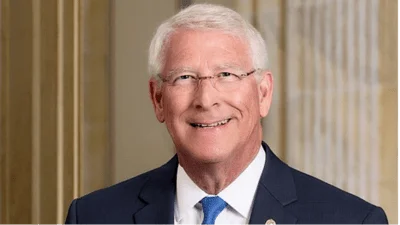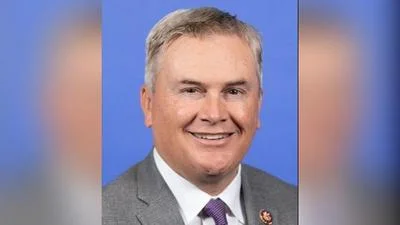Congresswoman Nita M. Lowey (D-NY), Chair of the House Appropriations Committee and the State, Foreign Operations, and Related Programs Appropriations Subcommittee, delivered the following remarks at the Subcommittee's markup of its fiscal year 2020 bill:
Good morning, welcome. Thank you for coming so early. The Subcommittee will come to order.
I am pleased to share the FY 2020 State and foreign operations appropriations bill with you. During this markup process, you have all been great partners, and I could not ask for better Subcommittee membership.
I appreciate the insights and input in the House mark from my friend and Ranking Member, Hal Rogers. As you know, Hal and I trade off being Chair-although I prefer being Chair.
After reopening the government and finishing the FY 2019 process, we faced a truncated timeline for the FY 2020 bill. Our staffs did a great job and have worked around the clock to prepare the bill, so I recognize and thank Susan Adams, the Minority Clerk, Jamie McCormick of the minority staff, and Alex Pinson of Ranking Member Rogers’ personal staff, as well as my clerk, Steve Marchese, and his team-Craig Higgins, Erin Kolodjeski, Dean Koulouris, Jason Wheelock, Marin Stein, Jean Kwon and Clelia Alvarado. I also thank Liz Leibowitz, Wendy Coursen, Kelly Healton, Dana Acton, and Elizabeth Stanley on my staff.
We have a quick turnaround to get this bill through the committee and to the floor. Therefore, I ask that all the members reserve any amendments until we go to the full committee. Although, we’ve worked very hard to accommodate most of your requests, so I can’t imagine there will be many amendments!
This bill reflects Congressional priorities to advance U.S. foreign policy and our foreign assistance programs. It upholds many bipartisan positions of this Committee and of Congress. It largely follows the language of the FY 2019 Omnibus, with notable exceptions on certain issues, such as reproductive health, climate change, and multilateral assistance.
The FY 2020 allocation for all departments, agencies and commissions under the Subcommittee’s jurisdiction is $56.381 billion in discretionary budget authority. This is a 3.9% increase over the FY 2019 enacted level, an important investment to protect our national security and to repair America’s global standing and commitments.
Let me turn to highlights of the changes I propose to the Administration’s unacceptable, irresponsible FY 2020 request.
* The mark collapses the 11 OCO accounts into the base accounts for transparent accounting of the resources to fund foreign policy and national security. It also moves many reporting requirements to the Committee report.
* This legislation moves the Economic Support Fund from title III bilateral economic assistance to title IV security assistance, as it is requested by the President and where it resides in the underlying authorization. With this move, the Committee recommendation redirects most long-term development, democracy, and governance funding to the Development Assistance or Democracy Fund accounts.
* The mark also consolidates the Middle East general provisions and deletes outdated and duplicative language while maintaining all previous conditions and requirements.
* This mark reverses the President’s Global Gag Rule and stops unnecessary restrictions on family planning and health funding.
* The mark reaffirms longstanding support for multilateral organizations, which expands and extends our reach and maximizes the value of the tax dollars we appropriate.
* The mark also seeks to restore humanitarian and development assistance to the Palestinians to continue the viability of a two-state solution by providing resources to international organizations working in the West Bank and Gaza.
* Additionally, the mark provides permissive authority for the Administration to use funds in this, and prior Acts, to uphold the goals of the Paris Agreement and restricts funds from being used to withdraw from such agreement.
* The mark also strengthens conservation and environment programs and maintains funding for adaption and renewable energy programs at prior year levels.
* Regarding Embassy Security, the mark includes $6.071 billion for embassy security, which is $658.9 million above the President’s request.
* The mark provides sufficient resources to restore diplomatic and development capacity at the State Department and USAID by restoring Foreign Service and Civil Service workforces to levels prior to the Administration’s hiring freeze.
* To address the harmful policies of the Administration that perpetuate the challenges and increase migration to our Southern border, this legislation strengthens the fiscal year 2020 funding directives for Central America, including the Northern Triangle countries. It also amends language included in prior year appropriations acts to significantly limit the Administration’s ability to redirect assistance outside of the region.
* Additionally, the mark continues robust funding for global health programs. It provides $5.930 billion for global HIV/AIDS activities, including $1.560 billion for the Global Fund and clarifies the U.S. commitment to maintaining our 33% share. It also includes $805.5 million for family planning services, giving millions of women access to critically-needed health care, of which $55.5 million is for our worthy partner, the United Nations Population Fund.
* This bill provides $4.115 billion for the Development Assistance account, including $925 million to increase access to basic education. It also maintains our commitment to food security, water and sanitation, trafficking in persons, and other long-term development objectives.
* The mark includes $7.892 billion in refugee and disaster assistance, including to Latin America, the Middle East, Asia, and Africa.
* The mark also provides robust support to our key allies, such as Israel, Jordan, Egypt, Ukraine, Colombia, and countries in Eastern Europe.
* Finally, in recognition of strong bipartisan support for the Peace Corps, the mark includes $425 for the Peace Corps, an increase of $14.5 million above last year.
These points reflect just a few highlights of the bill and report, which I urge you to read thoroughly.
I want to now turn to my Ranking Member, Mr. Rogers for his statement. After, I will recognize my Full Committee Ranking Member, Ms. Granger, for any comments she would like to make. I will then recognize any member of the Subcommittee for short comments on the bill.
Mr. Rogers, please proceed.
Source: U.S. Department of HCA









